Share this with your friends:
Ants are one of the most common insects that can infest potted house plants and outdoor plants in pots. Ants in citrus pots or flower planters are not uncommon sights for gardeners. Ants are naturally attracted to the sweet nectar these plants produce and can quickly become a nuisance. While they may not cause any direct harm to the plant, an ant infestation can be unsightly and make it difficult for the plant to thrive. Fortunately, there are a few simple steps that you can take to get rid of ants in planters.
You are watching: 10 Effective Ways To Quickly Remove Ants In Planters & Pots
Why are Ants attracted to potted plants?
Understanding why ants are attracted to potted plants can help you keep them out of your planters. If you know what they’re looking for, you can take steps to make your plants less appealing to ants.
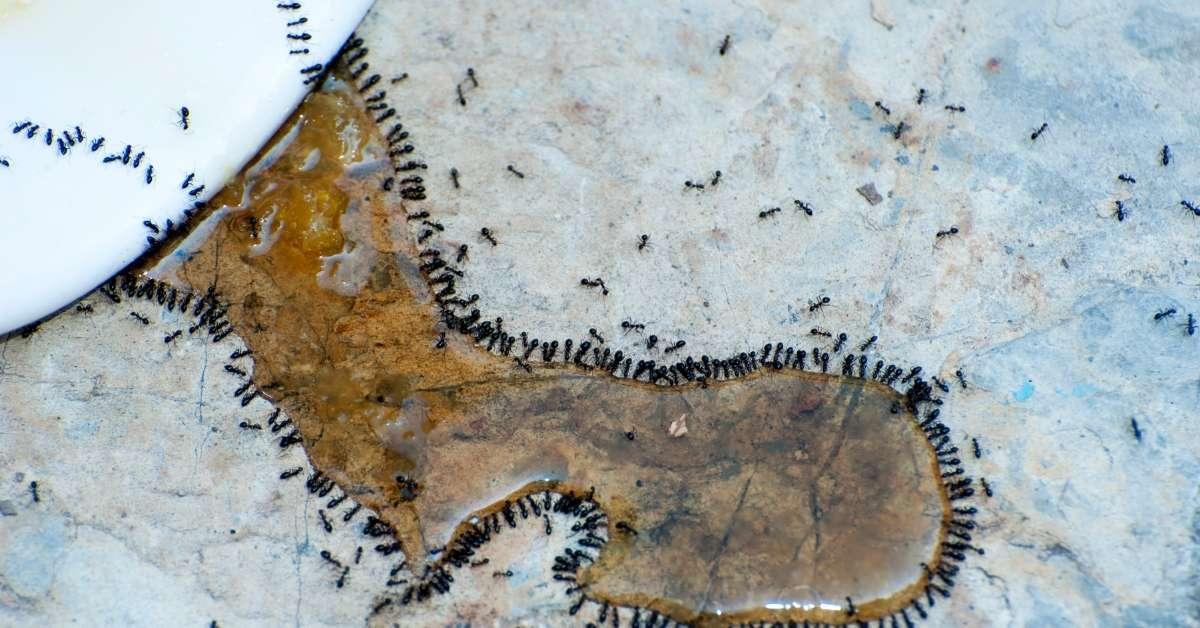
1. Ants are attracted to potted plants because they offer a food source.
Potted plants offer a food source for ants because they are usually full of sugar-rich fruits or produce honeydew secretions. Organic matter in the potting soil is another major attraction for ants. Ants are attracted to these substances and often build their nests near potted plants to access this easy food source. If you have ants in plant pots, you may be able to get rid of them by removing any mature fruits, flowers, and buds that they are attracted to.
If you see ants crawling on the potted plants, it could also point to another underlying problem. Some plant pests like Aphids and mealybugs are attractive food sources for ants. Ants can protect aphids from natural predators, and they can also spread them to other plants. To remove ants in potted plants, you should make sure to keep the potted plants free from aphids and mealybugs.
2. Ants may also build their nests in potted plants because the soil provides a suitable environment for raising their young.
The soil in potted plants is often loose and easy to dig, making it a perfect place to build an ant nest. The sun’s warmth can also help to incubate ant eggs, making potted plants an ideal environment for raising young ants.
Over time, the dry soil in the planter loses the ability to absorb water. So when you water the potted plant, the water stays on the top of the dry soil and drains out quickly. This hydrophobic soil is a perfect place for ants to build an ant colony. Make sure to use fresh soil or potting soil every year to keep the ants away from the planters.
3. Ants are attracted to potted plants because they offer shelter from the elements.
Potted plants can offer shelter from the elements for ants, especially during bad weather. The leaves of potted plants can protect from the sun and rain, and the roots can help anchor the plant in place, which can be especially beneficial for ants during floods or other natural disasters.
Potted plants tend to be warmer than the outside air, appealing to ants in cold weather. In hot weather, potted plants can provide some relief from the heat.
4. Ants are attracted to potted plants because of the scent.
Potted plants often have a strong scent that is attractive to ants. The smell can be from the plant or the potting soil’s organic material. These scents can help mask the smell of the ant nest, making it more difficult for predators to find them. The smell of potted plants can also help attract other ants to the area, which can help build a larger ant colony. If you have ants in your potted plant, the scent may be one of the reasons why.
The best ways to prevent Ant Infestation
If you want to stop ants from crawling on your potted plant, you can do a few things to deter ants and prevent them from coming back.
1. Put them on top of a plate with water
Placing a pot on a water tray creates a barrier that ants cannot cross. The water will prevent the ants from being able to reach the potted plant, which will keep them from being able to infest it. This is an easy and effective way to prevent ants from getting to your plants. Make sure to maintain at least 1/2″ water level in the tray.
2. Use pot feet, risers or stands
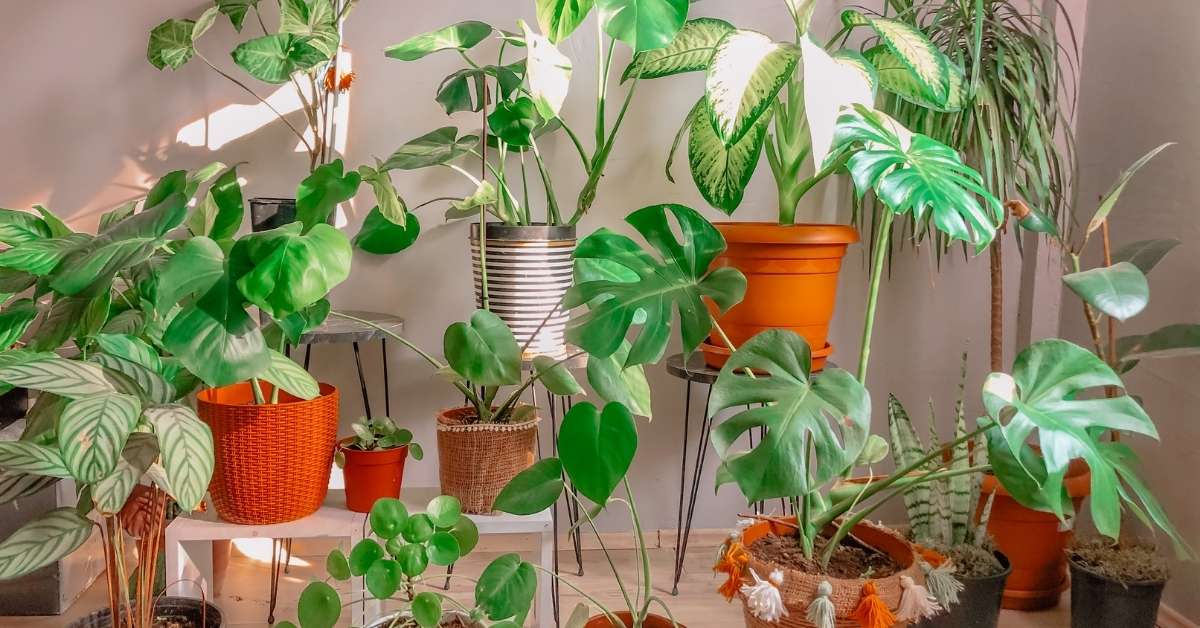
If you use pot feet, the ants will not be able to climb up the side of the pot to get to the plant. The pot risers create a gap between the pot and the surface the ants are trying to climb on. The ants will not be able to bridge this gap and will not be able to get to your plants. This is an easy and effective way to keep ants from getting to your potted plants.
3. Use less organic matter in potting soil
Organic matter in potting soil can attract ants. This is because organic matter provides a food source for ants. Using less organic matter in your potting soil will not be as attractive to ants. Instead, use stones or pebbles at the bottom of the planter and on the top of the planters.
How to get rid of ants from planters and potted plants
If you have ants in your potted plants, don’t worry – there are a few simple things you can do to get rid of them. First, try to determine where they are coming from. If they are coming from outside, you’ll need to seal up any cracks or openings where they might be getting in. You’ll need to find the nest and remove it if they are coming from inside the pot. Once you’ve determined where the ants are coming from, there are a few natural solutions and some different ways to get rid of them. These remedies can also be applied if you see ants crawling on garden plants.
1. Use cinnamon oil and powder

Using cinnamon for ants in potted plants is one of the natural and effective ways to get rid of them. Sprinkle some cinnamon powder around the base of the plant, and the ants will soon be gone. You can also put cinnamon sticks in the pot to help keep the ants away.
2. Spread Diatomaceous Earth on the soil
Read more : Introducing your cat to the outside
If you have ants in planters, Diatomaceous Earth powder can be a helpful tool in getting rid of ants. Diatomaceous Earth is a natural substance made up of the fossilized remains of algae. It works by cutting through the exoskeletons of insects, dehydrating and killing them. To remove ants from vegetables and herb planters, use food grade diatomaceous earth powder duster.
Sprinkle some Diatomaceous Earth around the base of the plant. You can also sprinkle it on the soil surface to keep ants from coming back.
3. Use insecticide (but not too much!)
Insecticides work by poisoning the ants that come into contact with them. Use the insecticide spray directly onto the plants or apply it to the soil around them. The poison will kill the ants that ingest it and discourage other ants from entering the area. However, it is essential to use insecticides sparingly, as they can also harm other creatures, including humans. If you use an insecticide, follow the directions carefully and only apply it to areas where ants are a problem.
4. Spray citrus or homemade ant repellent

Citrus is a great way to remove ants from potted plants naturally. The strong citrus scent will help to keep ants away. You can use citrus essential oils, citrus juice, or even put some citrus peelings around your plants. If you have ants in your potted plants, simply spraying them with a mixture of water and citrus juice will help eliminate them.
5. Use White Vinegar
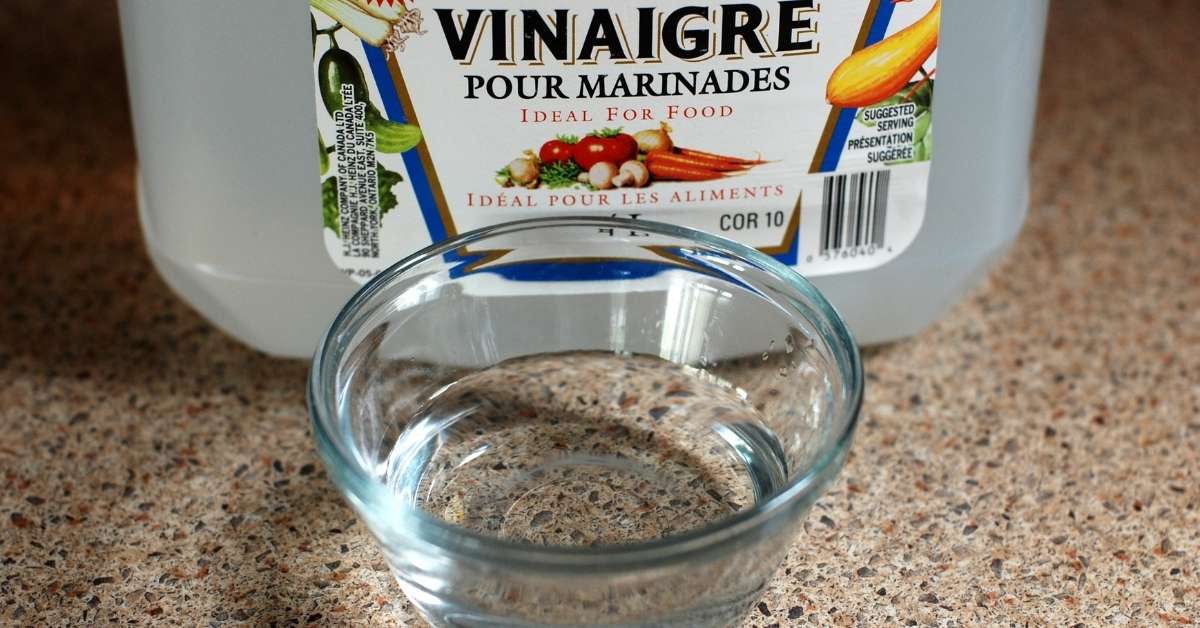
Vinegar can help get rid of ants by making a spray solution. Mix equal parts of water and white vinegar, and spray it around the perimeter of your home or wherever you see ants. The ants will soon be gone. You can also use white vinegar to clean up any ant trails you see. Soak a cotton ball in the vinegar and wipe away the ant trail.
6. Use Essential oils
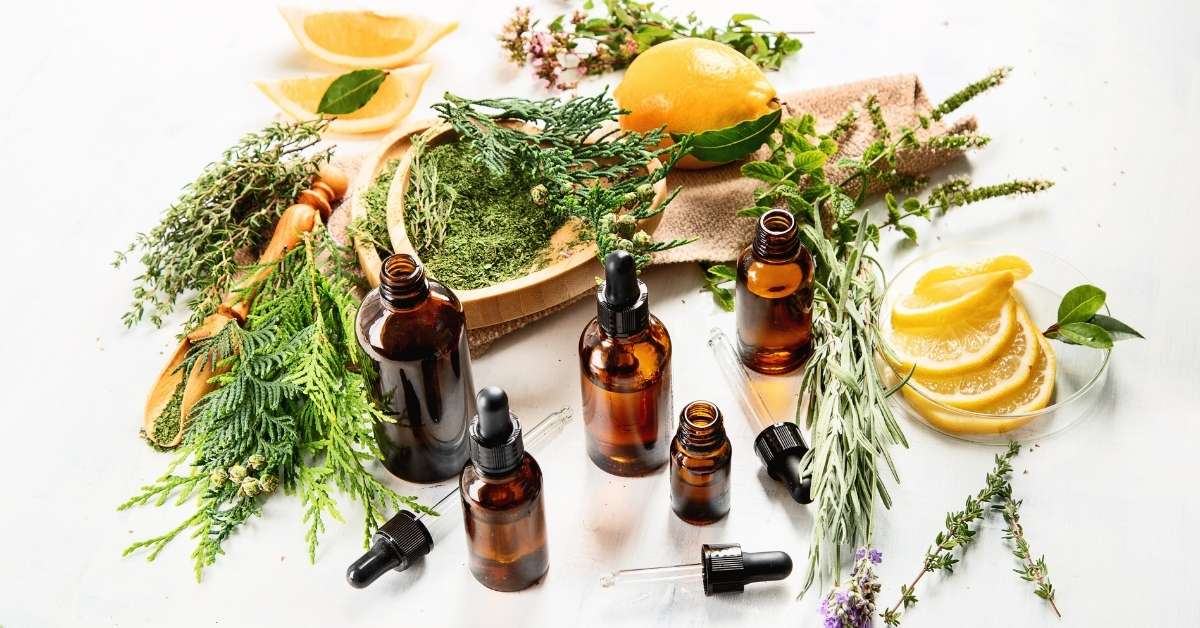
A variety of essential oils can help get rid of ants. Some of the most effective essential oils to remove ants include peppermint oil, citronella oil, cinnamon oil, and lemongrass oil.
Mix a few drops of the oil with water in a spray bottle and spray it around the perimeter of your planters with ants or wherever you see ants. The strong scent will help to keep them away. You can also put some essential oil on a cotton ball and place it near ant trails. The ant will pick up the scent and soon leave the place.
7. Soak the soil
If you have ants in your potted plants, soaking the soil can be a helpful tool in getting rid of them. The water will drown the ants and discourage other ants from entering the area. To soak the soil, fill a large container or pot (Must be bigger than the plant pot) with water. Place the infested plant pot in it. Let the soil soak for at least half an hour before draining the water. Repeat this process every other day until the ants are gone.
8. Make a DIY Ant killer for plants using Borox
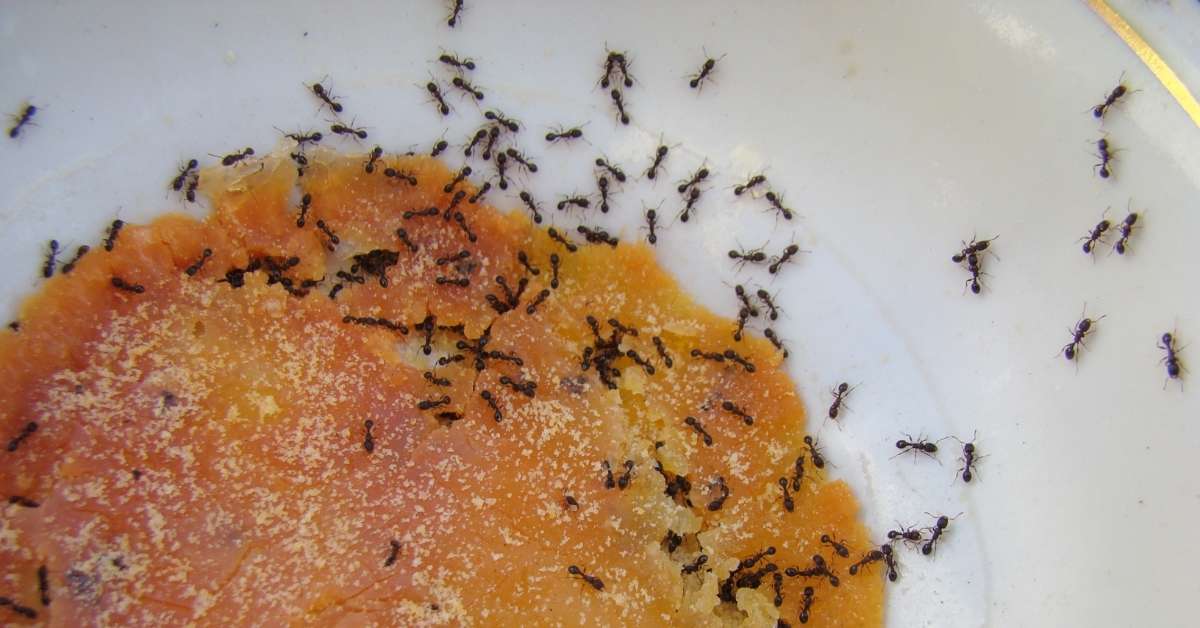
Borax is an effective ant killer because it interferes with the ant’s digestive system. The ants ingest the Borax, which then kills them. Borax is also a non-toxic substance, making it safe to use around children and pets.
Ingredients:
1/4 cup Borax
1/4 cup sugar
1/2 cup water
Directions:
1. Combine all ingredients in a bowl and stir until the sugar is dissolved.
2. Place the mixture in a shallow dish and set it near the ants’ nest.
Read more : 45 Easy Obstacle Course Ideas (Indoor and Outdoor!)
3. The ants will be attracted to the sweet mixture and will carry it back to their nest, where it will kill them.
9. Use Commercial Ant Bait
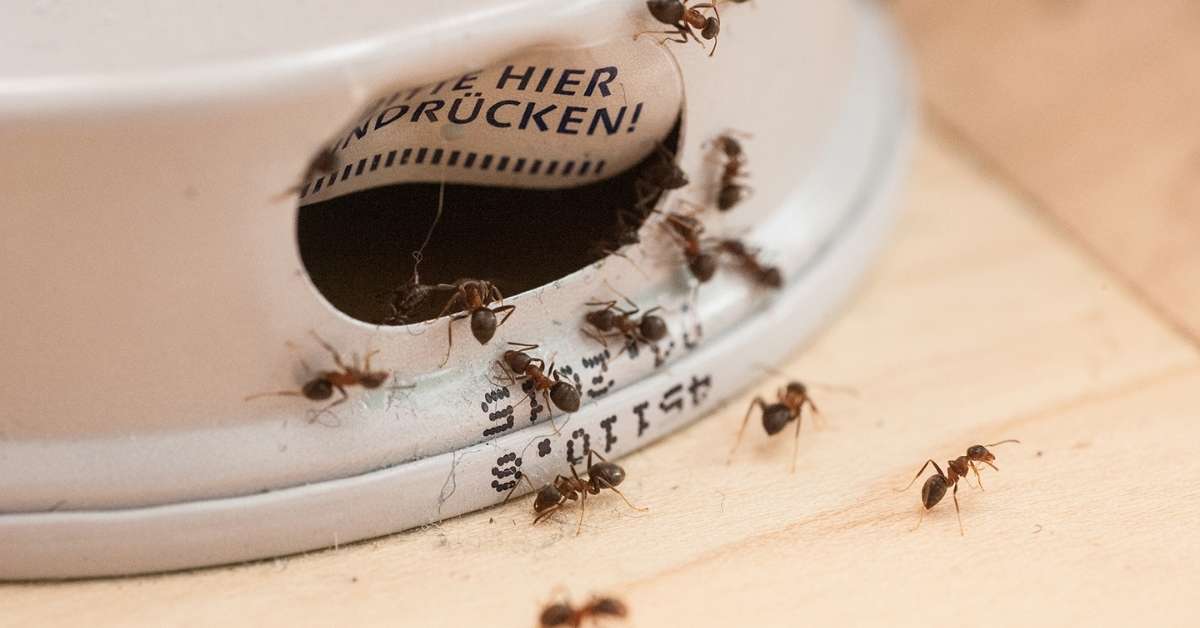
Ant baits are a great way to eradicate ants from potted plants. Place the ant bait in an accessible area for the ants, and they will take it back to their nest. The poison in the ant bait will then kill the entire ant colony. Ant baits are safe to use around humans and pets and are a very effective way to get rid of ants.
10. Replace the soil
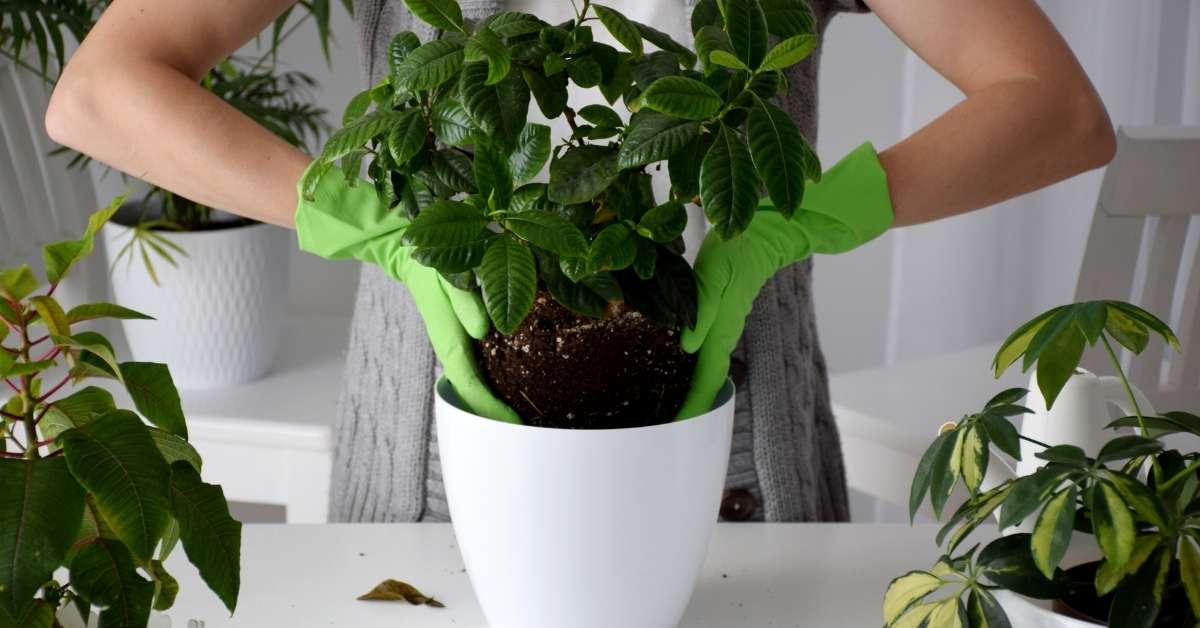
Replacing the soil in your potted plants can help get rid of ants. The process is simple: replace the old potting soil with a new potting mix. This will remove any ant trails or nests that may be in the old soil and will also discourage other ants from coming into the area. Be sure to dispose of the old soil in a sealed bag so ants cannot escape and come back.
How to protect indoor house plants from ants?
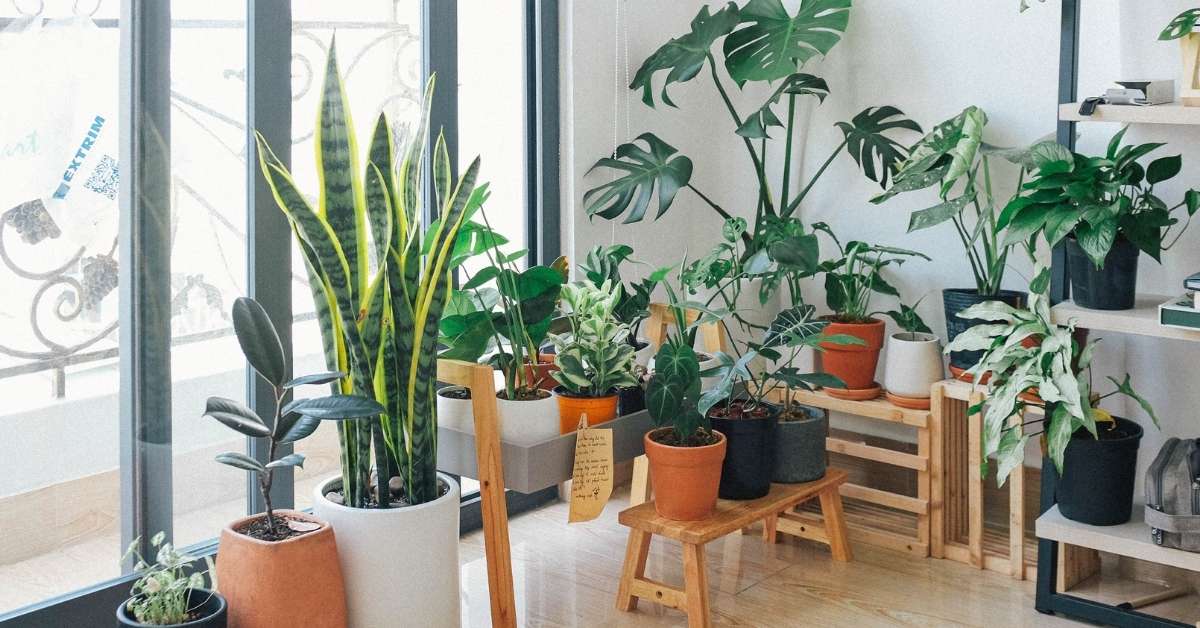
1. Inspect your indoor potted plants regularly for ants and remove any ants and bugs you find.
2. Keep your indoor potted garden clean and free of debris where ants can hide.
3. Keep your plants clean by wiping them down with a damp cloth or spraying them with water.
4. Ants are attracted to sweets, so avoid placing sugary foods or drinks near your plants.
5. Try using insecticidal soap or neem oil to get rid of pests like aphids and mealybugs that attract ants.
6. Use a commercial ant baiting product or make your own natural ant bait to lure ants away from your plants.
FAQs about Ants in potted plants:
Do Ants eat plant roots?
No, ants do not eat plant roots. However, they can cause damage to them by excavating the soil around them. This can make the plant’s roots more susceptible to drying out and damaged by pests or diseases. If you have a problem with ants damaging your plant roots, you can try applying some of the above methods to get rid of them.
Do ants harm plants in pots?
No, ants are not harmful to potted plants. In fact, they can be beneficial because they help aerate the soil and spread nutrients around. Additionally, ants prey on many pests that could damage your plants, such as aphids and mealybugs. However, suppose you have a persistent ant problem. In that case, it could indicate a more significant issue, such as poor drainage or too much moisture in the potting mix.
What ant killer is safe for plants?
While there are many products on the market that will kill ants, not all of them are safe for plants. So, if you have ants in your garden or home, you may wonder what ant killer is safe for plants.
There are a few natural ant-killers that are safe for plants. One option is to mix equal parts vinegar and water in a spray bottle and spray it on the ants.
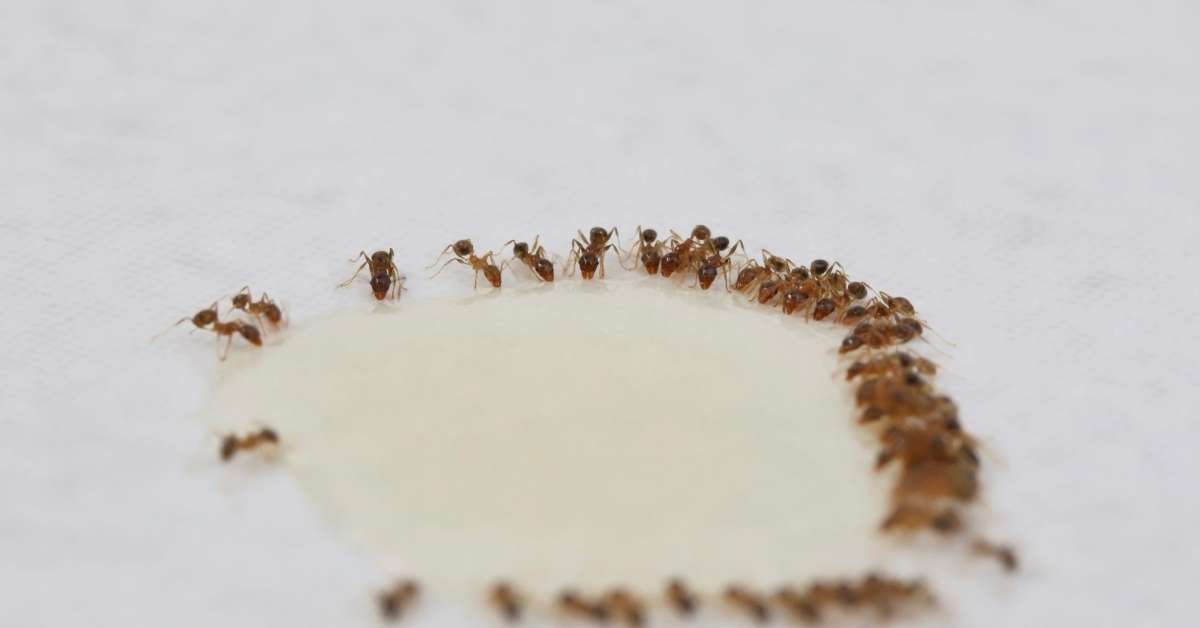
Another option is to make a paste out of baking soda and water. Apply it to the areas where the ants are coming in. You can also try sprinkling cinnamon or cayenne pepper around the affected areas.
These are some great options to try if you want to keep your plants safe while getting rid of ants.
Conclusion
There are a variety of methods that can be implemented to remove ants from potted plants- safely and naturally. Some of the most effective include using essential oils, soaking the soil, and replacing the soil. Ant baits are also a safe and effective way to kill ants. Be sure to choose an ant killer that is safe for plants if you have ants in your garden or around your home.
Share this with your friends:
Source: https://gardencourte.com
Categories: Outdoor

